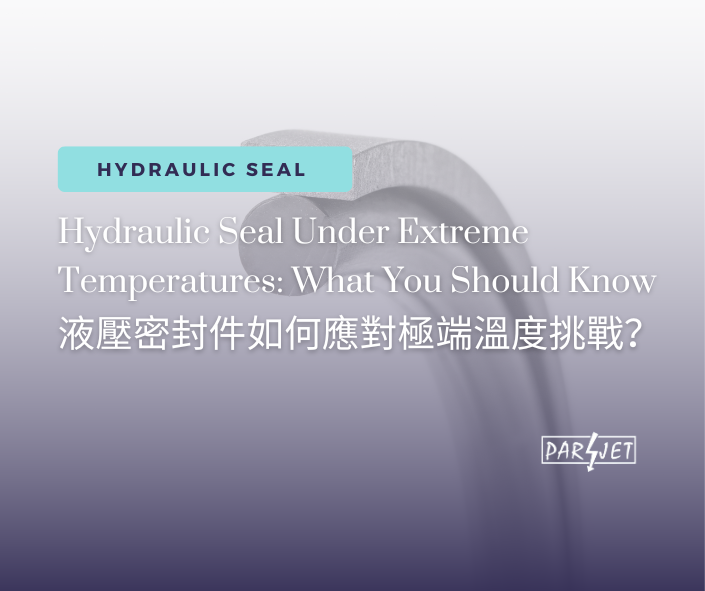Hydraulic Seal Under Extreme Temperatures: What You Should Know
Hydraulic seals are critical to ensuring the reliability and efficiency of hydraulic systems, even in the most challenging environments. When subjected to extreme temperatures—whether icy cold or blisteringly hot—the performance and longevity of these seals are put to the test. By leveraging advanced materials and engineering, hydraulic seals can overcome these challenges. This article explores the importance of material selection and design innovation, highlighting the unique advantages of PTFE Glide Seal Sets and compound materials for demanding applications.
How Extreme Temperatures Affect Hydraulic Seals
1. Low Temperatures
At sub-zero temperatures, conventional seals may lose flexibility, become brittle, and fail to maintain a proper seal. Applications such as refrigerated systems, arctic operations, or aerospace components demand seals that retain elasticity in freezing conditions.
2. High Temperatures
Prolonged exposure to heat can degrade seals, causing softening, deformation, or chemical instability. This is common in industries like automotive, heavy machinery, or chemical processing, where systems operate at elevated temperatures.
Advanced Solutions: PTFE Hydraulic Glide Seal Sets
Parjet’s PTFE Glide Seal Set, featuring a PTFE sealing element and an elastic O-ring energizer, is an innovative solution for extreme operating conditions. These seals excel in:
• Low Friction & Smooth Operation
The PTFE compound ensures low break-out and running friction, eliminating stick-slip issues and ensuring steady movement even during intermittent or high-speed operation.
• Durability Under Pressure
With high extrusion resistance and excellent wear properties, PTFE Glide Seals maintain integrity under pressures up to 400 bar and temperatures ranging from -40°C to 200°C.
• Broad Application Range
These seals are ideal for hydraulic and pneumatic systems, especially in high-stress environments like construction equipment, chemical plants, and power generation facilities.
Material Matters: Tailored to Your Application
The success of hydraulic seals under extreme temperatures lies in the material composition. Parjet’s PTFE compounds offer industry-leading performance:
• Virgin PTFE: Exceptional chemical resistance and low friction, suitable for semiconductor and food-grade applications.
• PTFE + Carbon + Graphite: High wear resistance and excellent creep resistance, perfect for rotary and hydraulic systems.
• PTFE + Bronze: Outstanding wear and extrusion resistance, ideal for high-stress applications like injection molding and press equipment.
• PTFE + Glass Fiber + MoS2: Combines high chemical resistance with excellent wear properties for medium-duty hydraulic systems.
These materials ensure that hydraulic seals meet the most stringent demands while extending service life and reducing maintenance costs.
O-Ring Elastic Energizers: The Hidden Hero
The elastic O-ring in PTFE Glide Seal Sets provides the initial sealing force by pressing the PTFE element against the mating surface. Our O-ring materials include:
• NBR (Nitrile Rubber): Reliable for temperatures between -40°C to 100°C, offering cost-effective sealing.
• Viton (FKM): Withstands temperatures up to 250°C, ideal for chemically aggressive environments.
• Silicone: Exceptional flexibility in cold conditions, perfect for dynamic sealing in freezing climates.
By combining these energizers with PTFE elements, the seals achieve robust performance across temperature extremes.
Precision Engineering with Finite Element Analysis (FEA)
To ensure durability and reliability of our hydraulic seals, Finite Element Analysis (FEA) is employed to simulate the stresses hydraulic seals experience under extreme conditions. This advanced technology helps:
• Optimize material selection.
• Identify stress points for failure prevention.
• Predict the lifespan of seals in dynamic environments.
Parjet’s engineering process ensures that every seal is optimized for maximum performance, no matter the operating conditions.
Applications for Extreme Temperature Seals
From hydraulic cylinders to rotary seals, our PTFE Glide Seal Sets and specialized compounds excel in diverse applications:
• Oil and Gas: High-pressure and corrosive environments.
• Aerospace: Withstanding rapid temperature fluctuations.
• Food & Medical: Ensuring safety in sterilization and cryogenic storage.
• Heavy Machinery: Resisting dust, heat, and high loads in construction.
Each application benefits from tailored material combinations and seal designs that prioritize efficiency and longevity.
Why Choose Parjet for Hydraulic Seals?
Our PTFE seals stand out with:
• Unmatched Material Performance: Proprietary blends like PTFE + Carbon + Graphite and PTFE + Bronze ensure superior wear and extrusion resistance.
• Comprehensive Product Range: Solutions for bi-directional pressurization, rotary motion, and high-speed applications.
• Customization Options: We design seals to fit AS 568A grooves and offer compact profiles for space-constrained systems.
• Global Expertise: Trusted by industries worldwide, from chemical processing to semiconductor manufacturing.
Reliable Sealing, No Matter the Climate
As one of a leading hydraulic seal manufacturers, Parjet understands hydraulic systems operating under extreme temperatures require seals that deliver durability, precision, and low maintenance. With our PTFE Glide Seal Sets, cutting-edge material compounds, and expert engineering, we provide solutions that excel in the harshest conditions.
Contact us now to get your tailor-made hydraulic seals for your extreme applications.






